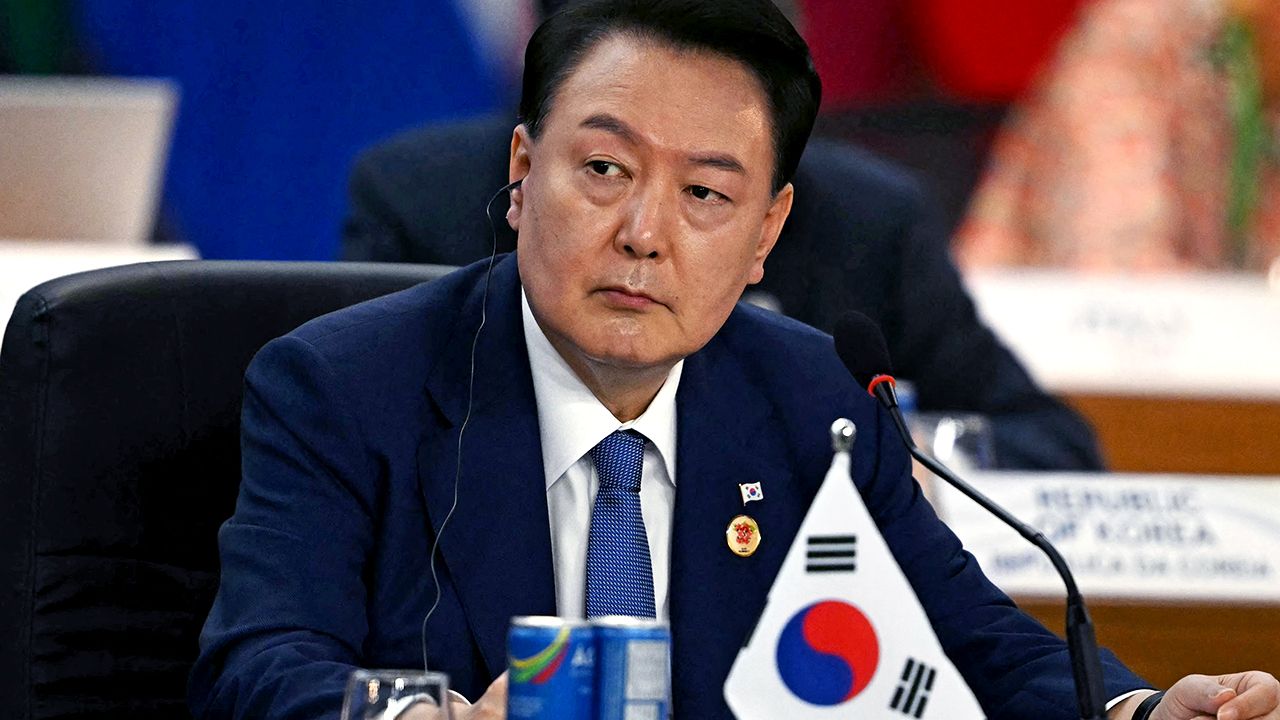Yoon Suk Yeol Faces Public Outcry Over 3% Salary Increase Amid Impeachment Crisis

South Korea’s suspended president, Yoon Suk Yeol, is set to receive a 3% salary increase despite being impeached for imposing a brief period of martial law.
The government confirmed that Yoon’s annual pay will rise to 262.6 million won (£147,000; $179,000), aligning with the standard adjustment for government officials.
Yoon, who was impeached in December for alleged insurrection and abuse of power, has resisted investigations and attempts to arrest him, plunging the nation into deep political unrest.
While suspended from his duties, he remains in office until the constitutional court delivers its verdict on the impeachment.
The announcement of Yoon’s salary increment has provoked outrage among South Koreans, many of whom are questioning why a suspended president is receiving a raise.
Social media platforms have been ablaze with criticism, highlighting the disparity between Yoon’s pay increase and the country’s minimum wage adjustment.
“Minimum wage increased by 1.7% while [Yoon gets] 3% for what?” read a widely shared post on X (formerly Twitter), garnering thousands of likes.
Meanwhile, critics argue that the president’s actions leading to his impeachment – citing threats from “anti-state forces” and North Korea as a pretext for martial law – were rooted more in domestic political struggles than genuine external threats.
Efforts to investigate and arrest Yoon have been obstructed by his security team, with an initial arrest warrant expiring on 7 January.
A local court has since extended the warrant, and investigators are preparing another attempt to take Yoon into custody.
Authorities have assured the public that any arrest efforts will avoid casualties, while warning that security personnel and lawmakers who obstruct justice may face legal repercussions.
Yoon’s legal team has labelled the arrest warrant “illegal” and condemned the use of police officers in the matter, accusing investigators of “betraying the public.”
They have also demanded transparency by requesting that arrest personnel not wear masks, citing concerns over potential impersonation.
The controversy has ignited protests across Seoul, drawing thousands of demonstrators both in support of and against the embattled president.
While critics call for Yoon’s immediate arrest and impeachment over his martial law declaration, his supporters argue that his actions were necessary to safeguard South Korea’s democracy.
Adding to the political chaos, Acting President Han Duck-soo, who assumed office after Yoon’s impeachment but was later impeached by parliament himself, is also slated to receive a 3% salary increase, bringing his annual pay to 204 million won (£114,000; $138,000).
The salary hikes for both Yoon and Han have intensified public discontent at a time when the country faces deep political divisions and economic uncertainty.
As the constitutional court deliberates Yoon’s fate, South Korea remains mired in a complex web of legal, political, and societal challenges.
The ongoing crisis has sparked widespread criticism, revealing the fragility of South Korea’s political stability and the growing disconnect between its leaders and the populace.







